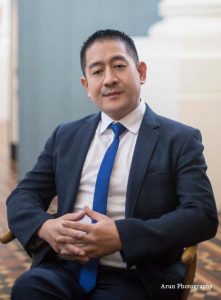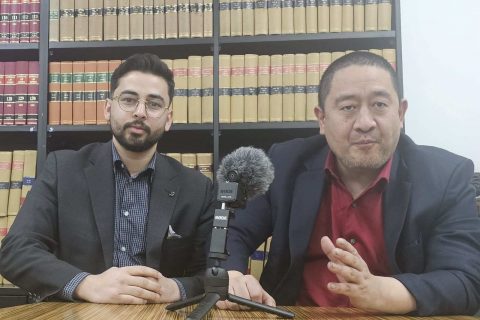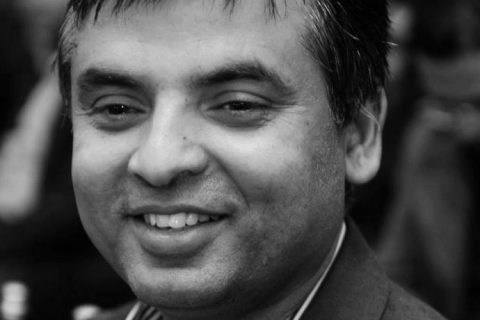The current prospective and the roles of NRNA: NRNA, a Pathfinder to a national development

Most of the Nepalese are eagerly waiting for a right person who will lead NRNA Global for 2019 – 2021. There are two main candidates, Kumar Panta and Kul Acharya. The decision will be made as to who will lead the NRNA, shortly after 17th October 2019 during which the 9th NRNA Global Conference and NRNA International General Assembly will be held in Kathmandu, Nepal from 15 – 19 October 2019.
However, the delegates of NRNA Australia will play an instrumental role in deciding the NRNA Global Team for 2019 – 2021 as there are more than 171 delegates from Australia. The number of delegates will be decided on the membership of each NCC and the new NRNA Australia Team for 2019 – 2021 which may play a vital role.
The election of NRNA Australia was held on 6 July 2019 and the Team of Keshav Raj Kadel won the election with the agenda of looking for the interest of people of Nepali origin and Nepal with being inclusiveness, transparent, sustainable and implementing reform in NRNA Australia.
The team of 2019-2021 and the future, it is tremendously necessary to assess the Team of 2017-2019 led by Tonnou W G Ghothane. The Team of 2017 – 2019 were successfully conducted 8th NRNA Australia National Conference 2019 with NRNA Australia National Excellence Award Ceremony on 10 August 2019 and handed the NRNA Australia to the new Team.
In 2017 – 2019, NRNA Australia did its regular work as outlined in the publications. Every State and Territory was active and implemented at least 10 programs in each State and Territory.
In the Election of 2017, there were four candidates with four different agendas. All the candidates focused on Nepal while Team led by Tonnou Ghothane was the only team who realized that with growing numbers of people of Nepali origin in Australia, the focus must be now in Australia. Tonnou Ghothane led the campaign with Think Global, Act Local. Tonnou Ghothane won the election by only few votes as there were four candidates.
When Tonnou Ghothane led the Team for 2017 – 2019 it was hit hard by financial crisis with minus in bank account due to ICC Building Levy. The funds are crucial to every organization. When the Team of 2017 – 2019 left on 10 August 2019, it made surplus of more than $50,000.00 for the team of 2019 – 2021 to work its agendas and projects.
The main focus of 2017 – 2019 was to look for the interest in Australia. It could only do that if NRNA Australia was stronger internally. Prior to 2017, NRNA Australia worked on AD HOC basis. It was not institutionalized. The focus of Mr Ghothane had been to make NRNA Australia institutionalized. Only institutionalized NRNA Australia could reform itself and follow the rules and protocols. No longer, NRNA Australia had to rely on what happened in 2007 or 2012. It only had to follow By-Laws which are fair to everyone. By end of 2019, there had been 10 By-laws and 55 Policies which NRNA Global even does not have.
The other tasks were to make NRNA Australia SCC legal by registering it as a Federal Body with robust Constitution. It was accomplished with years of hard work initiated by Secretary, Deb Bahadur Gurung, Sunil Bhandari and Tonnou Ghothane on 30 May 2019. NRNA Australia was finally registered with ASIC as public entity with limited liability.

Mr Ghothane also worked with Australian Charities and Not-For-Profit Commission (ACNC) to make NRNA Australia Charitable organization to get the Deductible Gift Recipients (DGR) status from Australian Tax Office (ATO). The policy is all in place for Team of 2019 -2021. That is very important status as any donations given to NRNA Australia can be tax deductable.
Mr Ghothane also initiated in 8th NRNA Australia Conference the need of NRNA Australia Policy Institute for lobbying with Australian and Nepalese government and NRNA Australia Foundation to look after charitable work. Mr
In Australia, one of the major issues with people of Nepali origin is Domestic Violence and Mental Illness. Mr Ghothane made these two issues that must be tackled first by making victims speak up and making awareness that they are entitled to speak up
Besides the initiation of NRNA Australia Policy Institute and NRNA Australia Foundation, Mr Ghothane also initiated the establishment of NRNA Australia
Law Reform Commission, NRNA Australia Law Interpretation Committee, NRNA Australia Disciplinary Committee and finally making Patron Council active as they have all the experience, wisdom and far sight.
It was first time in NRNA Australia that Mental Health Committee was established. Mr Ghothane focusing on Australia, revamped NRNA Australia Taskforces and Committees and made 28 of them at present state, which will cover for the interest of people of Nepali origin in Australia.
The new revamped Taskforces and Committees are as follows:
- Skills, Knowledge and Innovation (SKI) Committee
- Domestic Violence Awareness Program and Management Committee
- Pathibhara Shraddhashram Charity Management Taskforce
- Sports and Recreation Council Committee
- Mental Health Awareness Program & Management Committee
- NRNA Australia Welfare Fund Committee
- Nepali Language & Literature Committee
- NRNA Australia National Entrepreneur Conference Taskforce
- Australia Nepal Business Council Committee
- Collective Investment Committee
- Charity and Grant Program Management Committee
- Community, Embassy and Consulates Liaison & Promotion Committee
- Media, Newsletter and Publication Committee
- Walk for Welfare Taskforce
- Cultural Promotion and Management Committee
- Emergency and Rapid Response Committee
- Student Support Committee
- NRNA Australia Help Desk Committee
- Federal, State & Local Government Liaison & Lobby Committee
- Nepal Festival Taskforce
- NRNA Australia National Conference Taskforce
- NRNA Australia National Excellence Award Taskforce
- National and State Election Commission Taskforce
- One NCC One Investment One Employment Committee
- NRNA Australia Disaster Relief Fund Committee
- Association of Nepalese Organisations in Australia Committee
- Nepali Paathsala Committee
- Travel and Tourism Promotion Committee
Finally, the current President said on National Press Release on 30 August 2019 that if the current Team of 2019 – 2021 follows the current By-Laws, NRNA Australia will automatically Reform when asked by
local media person that what Reforms are you going to make for 2019 – 2021.
The remark of current Presdient Keshav Raj Kadel sums of the Team of 2017 – 2019 led by Mr Ghothane that Mr Ghothane left Legacy that NRNA Australia was transformed from AD HOC to institutionalized and reformed NRNA Australia for all.

काठमाडौं– अर्थमन्त्री वर्षमान पुनले तेश्रो अन्तर्राष्ट्रिय लगानी सम्मेलन–२०२४ भव्य रुपमा सफल भएको...

काठमाडौं- विगत चौबिस घण्टामा २२ जिल्लाका ६७ स्थानमा डढेलोले क्षति पुगेको छ...

इलाम– इलाम–२ मा मतगणनाको पछिल्लो परिणाम अनुसार नेकपा एमालेका सुहाङ नेम्वाङले ११...

काठमाडौं– फेशन नेटवर्क नेपालले नेपालमै पहिलो पटक तीन दिने ‘नेपाल फेसन फेस्टिभल’...

काठमाडौं- कक्षा–१२ को परीक्षा आजदेखि देशभर एकैसाथ सुरु हुँदैछ । राष्ट्रिय परीक्षा...

काठमाडौं– अर्थमन्त्री वर्षमान पुनले तेश्रो अन्तर्राष्ट्रिय लगानी सम्मेलन–२०२४ भव्य रुपमा सफल भएको...

काठमाडौं- विगत चौबिस घण्टामा २२ जिल्लाका ६७ स्थानमा डढेलोले क्षति पुगेको छ...

इलाम– इलाम–२ मा मतगणनाको पछिल्लो परिणाम अनुसार नेकपा एमालेका सुहाङ नेम्वाङले ११...

काठमाडौं– फेशन नेटवर्क नेपालले नेपालमै पहिलो पटक तीन दिने ‘नेपाल फेसन फेस्टिभल’...

काठमाडौं- कक्षा–१२ को परीक्षा आजदेखि देशभर एकैसाथ सुरु हुँदैछ । राष्ट्रिय परीक्षा...



